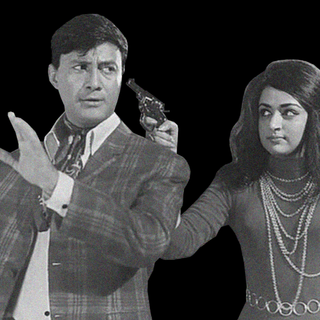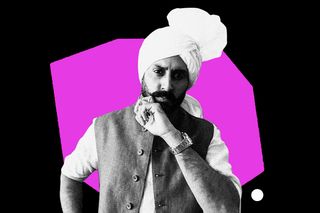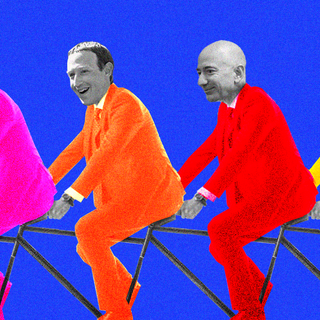
Dasvi’s Social Impact Is Diluted by Its Worship of a Privileged Male Character
Dasvi’s worth lies in the fact that it’s not as offensive as many of its Bollywood counterparts — its merits are relative, not absolute.

Dasvi could have been a breath of fresh air. Instead, the new-OTT release, which dominated Netflix India’s trending list this weekend, was a gust of strong wind that rattled a few leaves, flirted with the constitutional right to education, but failed to leave any significant mark. This wind also blew away the potential of the Abhishek Bachchan-starrer — with its impact on people’s minds best summed up through the powerful three-lettered word: meh. What particularly hurts is the idea of all that Dasvi could have been — a satire on India’s politics, a commentary on how the lack of education among politicians affects governance, or a Taare Zameen Par-esque story about dealing with learning disabilities within the Indian education system.
Tushar Jalota’s directorial debut, Dasvi — starring Nimrat Kaur and Yami Gautam Dhar as plot devices to further the narrative of Bachchan’s character, Ganga Ram Chaudhary — is a social comedy built on an interesting storyline. Bachchan plays an uneducated chief minister of a fictional state, who is ironically jailed due to his involvement in a scam pertaining to the appointment of teachers. While in prison, he decides to appear for his secondary school examination, or “dasveen (as it should’ve been spelled) ki pareeksha.” After he wins the state election with the electoral promise of “free education” and clears the exam — neither with as much hardship as one would expect — he chooses to assume the role of the state’s education minister, leaving his rival politician to take on the mantle of the Chief Minister of Harit Pradesh.
While the plot per se scores highly on irony and subversion, the writing tying it together sets the movie up for failure given its preoccupation with lending an overtly dominating narrative to a privileged male politician’s “struggles.” The larger social context of education gaps, issues government school teachers face, or lack of infrastructure is little seen or deliberated upon. Instead, we have Bachchan who goes through life Gandalf-ing everyone’s problems away simply because he’s, well, Gandalf. The larger systemic issues are solved without once tussling with the nuances. But when the problems in question include casteism and honor killing in a society governed by khap panchayats, magic or a facile plot arc does little to leave a mark.
Related on The Swaddle:
‘Decoupled’ Tried to Satirize ‘Toxic’ Societal Norms, Ended Up Normalizing Them
Chaudhary’s jail term, too, seems almost out of a modest fairy-tale set in rural India — oblivious to the reality of India’s prison systems. We see Chaudhary frolic his way through the prison, which not only seems to have some semblance of respect for the inmates’ human rights, but also provides them with all the resources, including what appears to be a chemistry lab, to enable them to pursue their aspirations. Perhaps, that’s why the filmmakers chose to set Chaudhary’s story in a fictional state — away from the clutches of reality.
Dasvi does have its moments. Take its treatment of dyslexia, for instance — it wasn’t laudable per se, but it deserves praise for its casting choice simply because its counterparts have consistently refused to do the bare minimum of involving people with marginalized experiences in telling stories of marginalized experiences.
In an industry that is rightfully criticized for appropriating the struggles of marginalized individuals — where privileged actors embody characters written by privileged writers with no lived experience of the relevant marginalization — Dasvi is an exception. The fact that it portrayed an openly dyslexic actor struggling with a learning disability on-screen was heartening for me to watch as a neurodivergent person myself.
Similarly, like countless others, Dasvi, too, treats its women as plot devices to drive the narrative of the central cishet male figure. “For a film [that] wants to nod to inclusivity and gender-upliftment with ‘ladies log’ as figures of authority, both Nimrat and Yami are reduced to standing by (the latter even joins the cheer-leading club), while Bachchan gets all the smart lines,” Shubhra Gupta, a film critic, wrote in The Indian Express.
Related on The Swaddle:
‘Atrangi Re’ Attempts to Simplify Mental Health, but Ends Up Romanticizing It
But, in its defense, it had never promised to be a movie about women’s empowerment — unlike Dangal, Chak De India, and Padman. And thankfully, for the most part, the cishet male protagonist, here, was working towards his own ambitions without appearing like a self-sacrificing savior.
Moreover, unlike Padman, the filmmakers of Dasvi steered clear of a romantic arc between Chaudhary and Gautam Dhar’s character, Jyoti Deswal — a refreshing decision in an industry that views women only as romantic, if not sexual, objects to its leading men. Having said that, one has to agree with film critic Sucharita Tyagi’s take on Deswal, “On paper, they have written the role of a police-woman … But it’s so obvious that it’s been written by men [translated from Hindi].”
Unfortunately, the movie’s merits are relative, not absolute. The joy was short-lived: in its hurry to deal with every possible social issue, the dyslexia-arc fizzles out even before the audience could begin to appreciate the challenge and become invested in how Chaudhary will navigate it to pass the exam his political career now hinges on. What a wasted opportunity, Sir Jee!
That’s the thing: Dasvi‘s worth simply lies in the fact that it’s not as offensive or as problematic as many of its Bollywood counterparts. Besides that, the movie is neither an example of brilliant filmmaking nor of a compelling social message. Its attempt at crafting a social message was invariably diluted by its decision to put its privileged protagonist on a pedestal; there are literal scenes comparing him to God. And despite some stellar performances by Bachchan and Kaur, that’s where lies Dasvi‘s undoing.
Devrupa Rakshit is an Associate Editor at The Swaddle. She is a lawyer by education, a poet by accident, a painter by shaukh, and autistic by birth. You can find her on Instagram @devruparakshit.
Related


Why We Laugh at Cheesy Jokes
